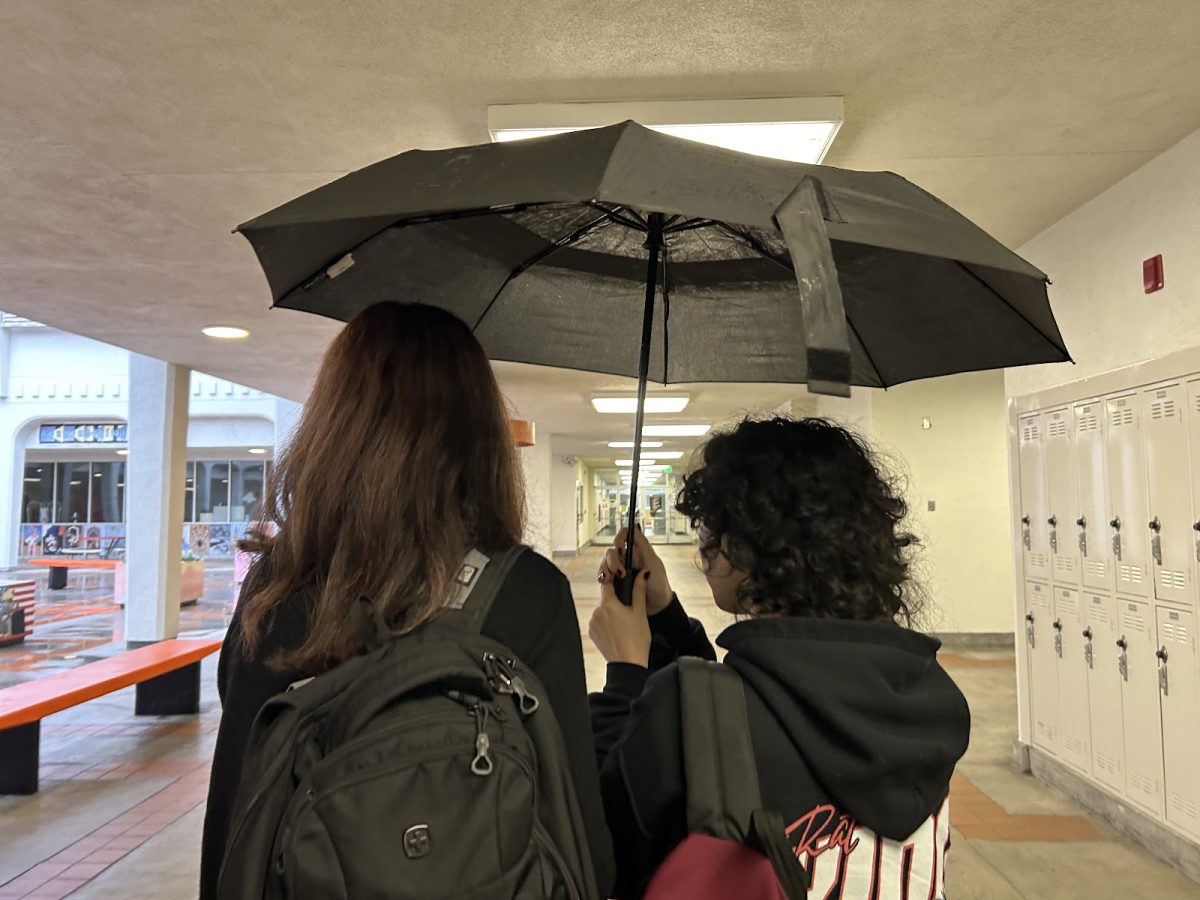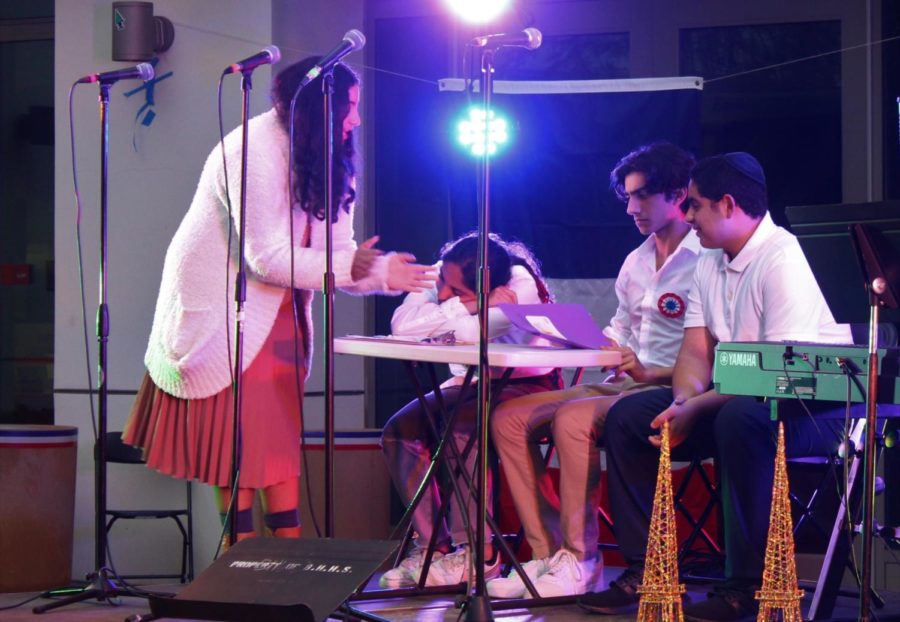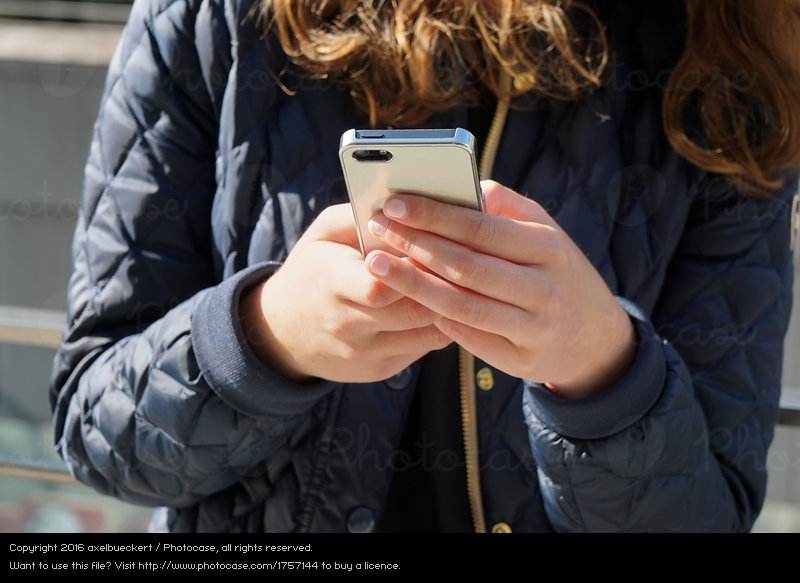Pro
Natasha Dardashti staff writer
“Teenagers would be more social if it weren’t for their smartphones.”
How many times have you heard this statement? While most people see the use of smartphones in a social situation, like a party, to be rude, they blatantly disregard the many teenagers who simply use technology as a safeguard against social exclusion. Without smartphones, shy kids just feel more unwilling to socialize in unpleasant situations.
According to John Hunter, a doctor of social psychology and professor at University of California, Irvine, who conducted a scientific experiment involving phones and the feeling of social isolation, “the mere presence of a phone (not necessarily phone use) can reduce feelings of exclusion and buffer against the stress of social exclusion.” Being in an unfamiliar place can be taxing, but knowing that there is an escape route from potential social exclusion can provide more confidence.
Instead of blaming technology for problems in younger generations, it is important to focus on what technology truly means to teenagers. Though usage of a smartphone in a social situation may be rude, it is not an almighty cause for a generation of laziness. Rather, technology has allowed for a generation of self expression that is vastly different from any other. As stated in social psychologist Sonia Livingstone’s essay on teenagers and their use of social networking, social media helps to manage a teenager’s “identity, lifestyle and social relations.” Adults who reduce social media to a social Get Out Of Jail Free card are severely misunderstanding of what it has come to mean for the modern teenager. For many teens, social media pages represent an identity they aspire to live up to despite all the growing pains of attending high school.
Frankly, smartphones are an introvert’s paradise. Introverts especially turn to them as a “social security blanket” in the same way they turn to reading; it is simply a way to be alone without being completely alone. Using a buffer to distract from the discomfort of reality is not a concept that has only emerged with technology. Before smartphones, people would use reading to escape from their current reality. Now, reading has expanded to multiple creative outlets that are all portable and easily accessible. An introvert who needs time to recharge has multiple options, including that of effortless communication, that were not available 20 years ago. The introduction of social media, television and smartphones does not subtract from our humanity, but instead adds a new aspect to it.
Introverts will be introverts. Shy people will be shy. People will not make attempts to ease the terse awkwardness of a social situation, whether or not there is a phone in their pocket. Blaming technology gives the incorrect assumption that it is okay to blame personal traits on an external force. Before older generations pin generalized shortcomings onto an entire younger generation, they should analyze exactly what they are criticizing.
–
Con
Mikaela Rabizadeh social media manager
Picture this: a high school party in 2017. What comes to mind? Maybe you jump to the stereotype, complete with red solo cups filled with cheap booze. Maybe you picture a movie scene straight out of Project X. Regardless of your prior expectations, the answer is none of the above.
Walk into almost any high school social gathering today and you will see teenagers with heads buried in their phones, reluctant to acknowledge those sitting less than a foot away from them. Absorbed by Instagram and Snapchat, they create the illusion that they are being “social” all while demonstrating the complete antithesis of the word.
When faced with uncomfortable situations, most teens often opt to find security in their cell phones. In fear of being tagged antisocial and awkward, we hide behind our phone screens to seem preoccupied. This type of communication is anything but social.
Today’s generation invests so deeply into technology that there has become a complete loss of social skills. The entire in-person aspect of communicating with people has widely diminished. What do you expect from a society that relies so heavily on the internet to find their significant other? It’s no surprise that having grown up in the age of Apple, we outgrow our stuffed animals and security blankets only to find ease in our smartphones.
A study conducted by the Kaiser Family Foundation reveals that younger generations primarily “ages eight to 18 spent more time on media than on any other activity – at an average of 7.5 hours a day.”
It’s our guilty pleasure. Everyone spends a little too much energy scrolling through social media or binging on Netflix after a stressful day, but these few indulgences in procrastination barely compare to the amount of time high school students invest online. It’s come to a point where there’s been a sudden disconnect from reality, as we not only interact, but live and breathe, through virtual means.
Technology is engraved into the very existence of the younger generation. Unlike generations before, we don’t see the smartphone as the “new” means of communication. In fact, we have barely experienced a time without the iPhone; it’s all we know. As a result, psychologists like Jean M. Twenge label the generation following Millennials as iGen.
According to Twenge, iGen represents individuals born between 1995 and 2012, who “don’t remember a time before the internet.” She claims the rise of the smartphone has destroyed the entire generation, compromising both their social skills and mental health.
“It’s not an exaggeration to describe iGen as being on the brink of the worst mental-health crisis in decades. Much of this deterioration can be traced to their phones,” she said. “Their social life is lived on their phone. They don’t need to leave home to spend time with their friends.”
This homebody phenomenon is problematic to a growing community. Instead of vegetating on our phones, we need to focus on something other than a screen. In our community especially, we are fortunate enough to have access to technology, making the us especially susceptible to the consequences of overuse. As a student body, we must be mindful of how much time we devote to the time-consuming computer we hold in our back pockets.
Nevertheless, although our lives now revolve around our digital presence, that doesn’t mean our face-to-face social skills should suffer in return. Sometimes, all it takes to make a friend is mustering up the courage to say, “Hey,” to that girl sitting a foot away from you, instead of waiting for a follow back.






























